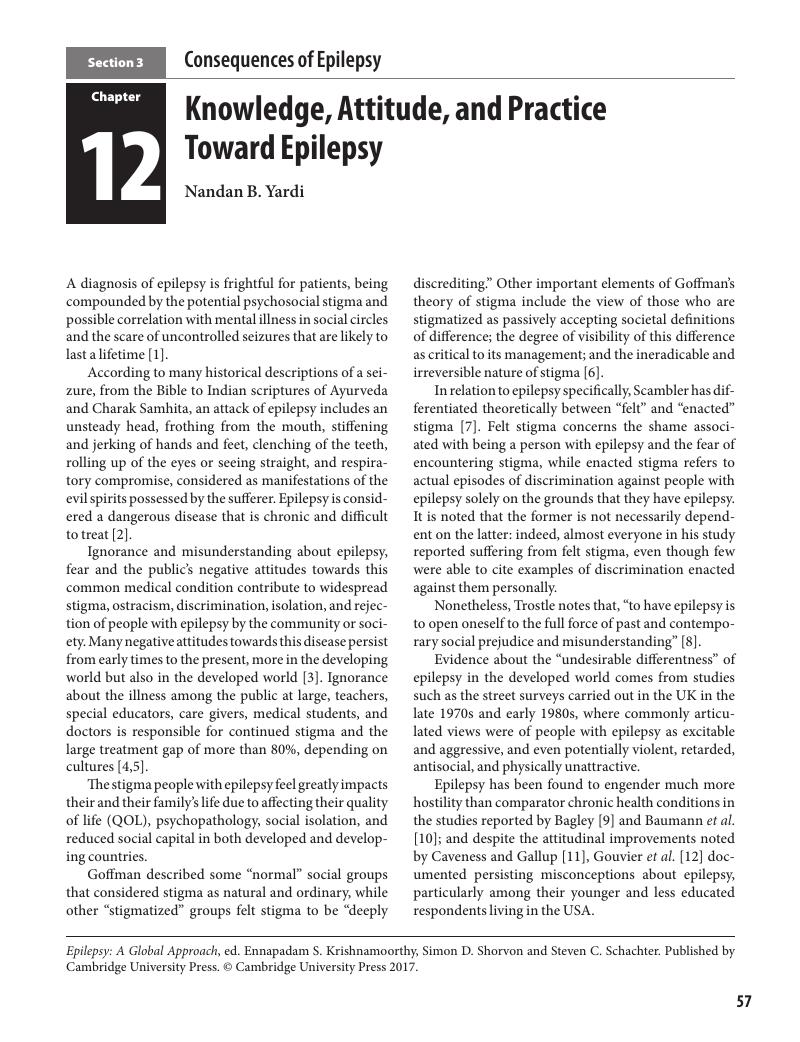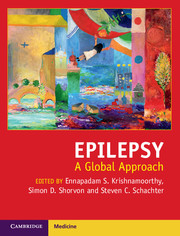Book contents
- EpilepsyA Global Approach
- Epilepsy
- Copyright page
- Dedication
- Contents
- Contributors
- Acknowledgments
- Section 1 Editorial Introduction
- Section 2 Infective Causes of Epilepsy
- Section 3 Consequences of Epilepsy
- 7 Physical Consequences of Epilepsy
- 8 Quality of Life and the Stigma of Epilepsy
- 9 Neuropsychiatric Consequences of Epilepsy
- 10 Cognitive Consequences of Epilepsy
- 11 Naming Epilepsy
- 12 Knowledge, Attitude, and Practice Toward Epilepsy
- 13 The Economic Burden of Epilepsy in China
- 14 Integrated Thoughts
- Section 4 Comprehensive Epilepsy Care
- Section 5 The Medical Management of Epilepsy
- Section 6 The Surgical Management of Epilepsy
- Section 7 Non-Pharmacologic Management of Epilepsy
- Section 8 Epilepsy Issues with Global Health Impact
- Section 9 International Perspectives
- Index
- References
12 - Knowledge, Attitude, and Practice Toward Epilepsy
from Section 3 - Consequences of Epilepsy
Published online by Cambridge University Press: 13 April 2017
- EpilepsyA Global Approach
- Epilepsy
- Copyright page
- Dedication
- Contents
- Contributors
- Acknowledgments
- Section 1 Editorial Introduction
- Section 2 Infective Causes of Epilepsy
- Section 3 Consequences of Epilepsy
- 7 Physical Consequences of Epilepsy
- 8 Quality of Life and the Stigma of Epilepsy
- 9 Neuropsychiatric Consequences of Epilepsy
- 10 Cognitive Consequences of Epilepsy
- 11 Naming Epilepsy
- 12 Knowledge, Attitude, and Practice Toward Epilepsy
- 13 The Economic Burden of Epilepsy in China
- 14 Integrated Thoughts
- Section 4 Comprehensive Epilepsy Care
- Section 5 The Medical Management of Epilepsy
- Section 6 The Surgical Management of Epilepsy
- Section 7 Non-Pharmacologic Management of Epilepsy
- Section 8 Epilepsy Issues with Global Health Impact
- Section 9 International Perspectives
- Index
- References
Summary

- Type
- Chapter
- Information
- EpilepsyA Global Approach, pp. 57 - 62Publisher: Cambridge University PressPrint publication year: 2017

